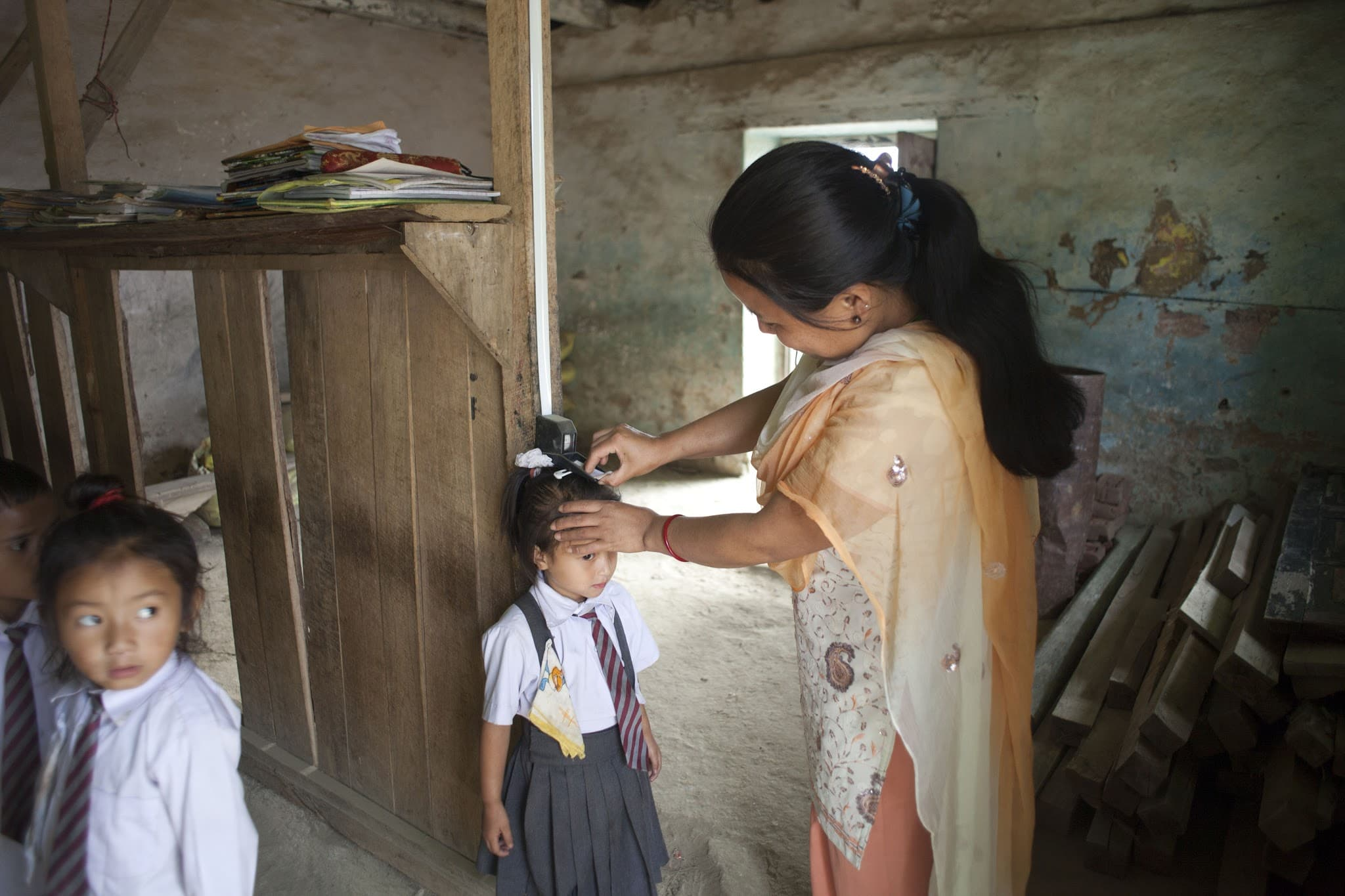Experts in the intersection of Health and Education
Healthier children leads to increased school attendance and ultimately better communities in the long term.
Broadleaf is a demonstrator of what is possible....
Our organization exists to challenge the status quo that is persistent in global development. While there is no lack of good intentions, we reject the notion that good intentions are good enough. Broadleaf's keystone program is called the Community Health and Hygiene Improvement Program or as we call it, CHHIP.
Our goal is to create programs that leverage the tremendous human talent that exists in our partner communities, that use solutions and methods that yield data driven results, and that can be easily replicated, not just in Darjeeling, but across other rural regions in India and throughout the globe.
The Problem
Poor nutrition and limited access to basic healthcare and a severe lack of healthcare professions
Many schools in rural India lack basic infrastructure, like toilets, running water and electricity. Without access to proper sanitation, children are at high risk of infection. In some schools, children missed an average of 20 days of school per year due to diarrhea and dysentery alone. Half of the children were infected with intestinal parasites, and almost 40% of these children suffered from iron deficiency anemia. Many also struggle with poor nutrition, undiagnosed developmental delay, chronic illness, and behavioral issues. These health issues make it impossible for children to thrive.
In addition, the remoteness and the difficult terrain pose additional challenges in healthcare access with doctors and hospitals located in towns and cities that are many hours away by car. Populations of 50,000 or more people spread across a large region can at times be served by one doctor. There is a severe lack of healthcare professionals working in these remote communities.
The Opportunity
A public health priority
The Indian government acknowledges the problems prevelant in their rural schools and has identified school health programs as a priority public health program. In fact, local state government has even set aside significant amounts of funding for these programs. Unfortunately, over the course of ten years working in the rural communities of the Eastern Himalayas, we have yet to see one of these programs in action.
Luckily, the government is actively seeking alternative models to address the problems in these communities.
The Solution: Comprehensive Health and Hygiene Improvement Program
CHHIP is a health education and improvement program with three inter-related components, created for implementation in rural primary schools in the Darjeeling District of West Bengal, India.
CHHIP is an evidence based program designed to improve communities from the ground up by delivery health and education services to children in primary school.
Our key innovation is to use a different human resource delivery model. Rather than relying on traditional models where teachers, nurses and doctors are engaged to implement school health programs, we work with and train community members as School Health Activists (SHAs).
By working with the existing talented and committed individuals present in every community and providing support and training, we have shown that we can greatly improve the health and well-being of the children in rural schools.

